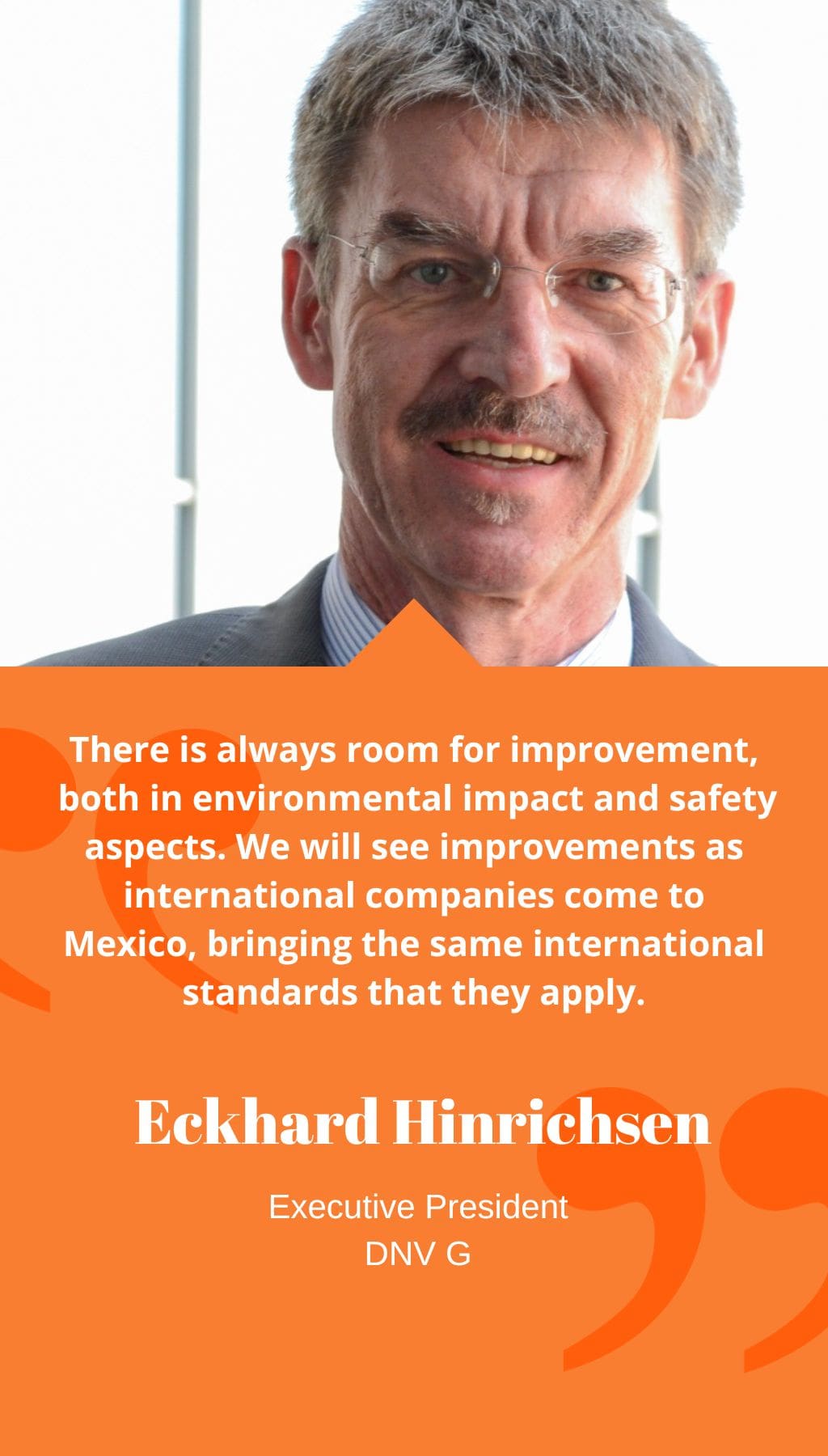
- Mexico | 12 June 2016

Could you provide some details about the resulting company of the merger, DNV GL?
In September 2013, DNV and GL Noble Denton joined forces to increase their technical expertise, improve innovation, expand their global reach, and integrate their global service portfolios. This year, we are celebrating the first anniversary since the merger; the company has been around for 150 years.
We have 400 offices in 100 different countries and 16,000 employees. 5% of DNV GL’s revenue is reinvested in research and development, contributing to financing 100 industrial projects each year. We are present in the oil and gas sector of 39 countries, with 5,500 people dedicated to this industry.
The oil and gas business line is headquartered in Norway. Our services cover all types of assets, from the beginning to the end of their life cycle. The nuclear areas of our services include technical assurance (certification, verification, and inspection included), safety and maritime advisory, risk management advisory, technical advisory, marine classification, and software solutions. We work with all major clients, such as Pemex, Chevron, Statoil, and many others. In Mexico, we have a total of 170 people, 100 of whom are dedicated to oil and gas.
How has the merger changed your operations in Mexico?
Now we have a broader product line and more experience in areas such as deepwater. The reform has not yet produced any new projects, but our level of activity here is quite high anyway. There are projects for gas plants and pipelines, as well as a lot of drilling activity and Pemex’s deepwater project, which began before the reform. Pemex invests around 27 billion dollars a year, and about 75% of that amount goes to Pemex E&P, with a strong interest in exploration. It is expected that international companies will have similar levels of investment, so total investment in the next 4-5 years may double.
Pemex has a deepwater project that is accelerating, in addition to exploration drilling in deep and ultra-deep waters. The fact that there was a lot of oil in shallow waters had prevented Pemex from doing more in the past. Deepwater will probably be the priority target of international companies.
We work with major companies worldwide, such as Chevron, Shell, Statoil, and others. If these companies come to Mexico, they already know us and can count on our strong presence in the country and our Houston office. In Mexico, our main business is technical assurance, followed by risk management and asset integrity services; we are also expanding the area of marine services. In risk management, we assess the financial impact of wells in deep waters, considering the worst-case scenario, such as the Macondo accident. We have done these assessments for all deepwater wells drilled in Mexico to date. We also have a lot of experience in oil spills.
DNV GL has a strong interest in reducing accidents and the environmental impact of the industry. What is the situation regarding this issue in Mexico?
There is always room for improvement, both in environmental impact and safety aspects. We will see improvements as international companies come to Mexico, bringing the same international standards that they apply, for example, in the North Sea. So far, we have had the Pemex monopoly, and they have already made great strides in raising safety levels.
What other challenges do you encounter in your work in Mexico?
The Pemex tendering process is quite complicated and bureaucratic. They have now created the procurement director position, following the centralized model of other large companies.














